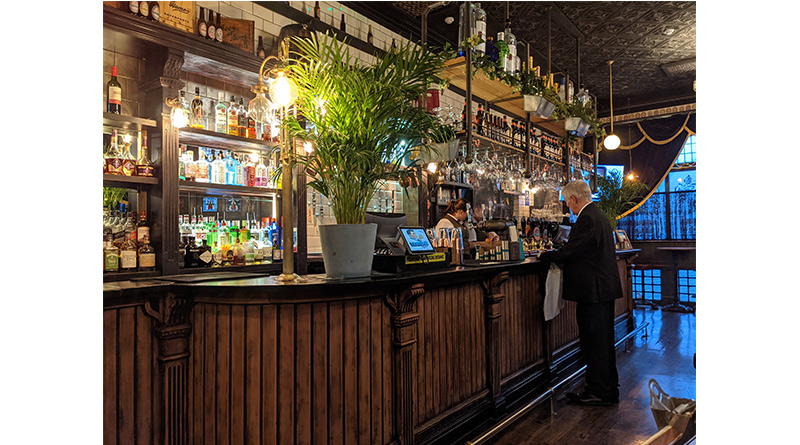“Knock-Out Blow” for Scotland’s Licensed Hospitality Operators Now Facing Further Restrictions After Christmas

First Minister Nicola Sturgeon has introduced new Covid restrictions for hospitality venues in a bid to slow the rise in the new Omicron variant.
Ms Sturgeon reintroduced the one-metre social distancing rule for the hospitality sector, outlining that all groups of people attending any venue together should keep one metre away from other groups. In addition, people from no more than three different households will be allowed to mix when socialising indoors.
Giving the statement at the parliament, Ms Sturgeon said: “I can confirm that a requirement for table service only will be reintroduced for venues serving alcohol for consumption on the premises. And we will also ask for indoor hospitality and leisure venues to ensure the one-metre distance, not within, but between groups of people who are attending together.
We will continue to advise people that if they are attending indoor hospitality or leisure venues – and remember our core advice remains to minimise this – there should be no more than three households represented in any group.”
The new restrictions will come into force starting from December 27 and will hold for the following three weeks.
The First Minister said that the new measures are necessary to “reduce transmission risk in what are, through no fault of those who run such venues, higher risk environments”
Colin Wilkinson, managing director, SLTA (Scottish Licensed Trade Association) said :“This afternoon’s announcement by First Minister Nicola Sturgeon that pubs and other hospitality venues selling alcohol must reintroduce table service and one-metre physical distancing between groups of customers from December 27 for a period of three weeks could well be the knock-out blow for many in the battered and bruised licensed hospitality sector in Scotland.
“The limit of 100 people for indoor standing events and 200 for indoor seating events – although this does not apply to private life events such as weddings – will hugely impact on the late-night industry which has been hit particularly hard since the onset of the Covid-19 pandemic.
“In addition, the cancellation of large-scale events such as Edinburgh’s Hogmanay will have a knock-on effect on the licensed hospitality sector.
“However, the damage was done when Public Health Scotland advised deferring Christmas parties until another time. Endorsed by the Scottish Government the next day, this led to a slew of cancellations and, effectively, the end of any chance the licensed hospitality sector of clawing back lost business at what is traditionally the busiest trading period of the year.
“That said, the key focus for the Scottish Government must now be to ensure that the £66 million aid package announced last week for the hospitality sector is made available as soon as possible.
“However, the SLTA is particularly angered that this funding will not be specifically directed to those businesses that need it the most.
“It is utterly indefensible for businesses such as cafes, takeaways and even multinational fast-food outlets which have not experienced the decimation that has been caused to the licensed hospitality sector at this vital trading period to now receive the same level of support funding as those hit by the PHS messaging to defer Christmas parties in Scotland’s pubs, bars and restaurants.
“We understand this funding will be available in early January and the distribution of the additional funding of £275m announced today is still to be decided and it is hoped that this will become available towards the end of January.
“New research from the Night-Time Industries Association (NTIA) shows that average sales are down 52% across the sector in December so far, with the average loss of income now £56,000 per premises for the first two weeks of December alone, and this trend is accelerating.
“Half of premises reported more than 50% of jobs are at risk while 20% of premises report 90% or more of jobs are at immediate risk – these figures are as worrying as they are startling.
“When asked how long they can survive without the arrival of cash support, 43% said they can survive less than one month, 25% can survive up to two months, 20% can survive up to three months and 12% can survive up to four months.
“This is the stark reality of the situation for Scotland’s licensed hospitality sector. Many are also carrying huge debt as a direct result of Covid – bars are averaging £169,200 debt, nightclubs/hybrids/event spaces are averaging £167,000 while pubs are averaging a Covid debt of £101,600.
“New Government guidelines will be published soon, but they will be towards the latter half of the week leaving little time for operators and staff to adjust to the new regulations.”
